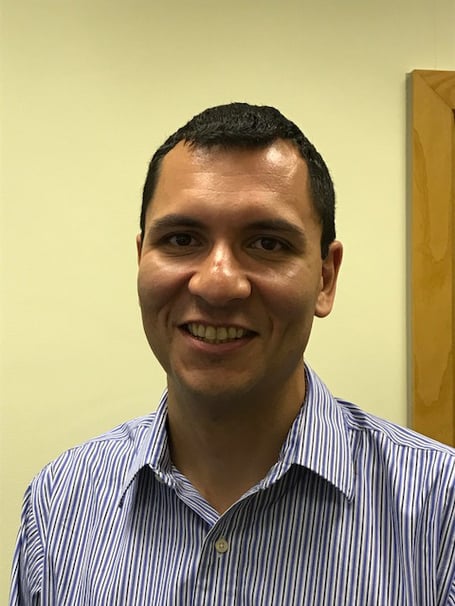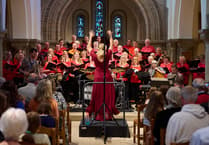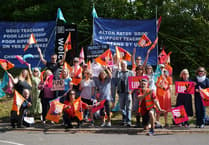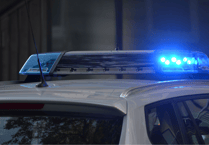Dr Alexander Goodman has been a GP at Chawton Park Surgery in Alton for five years.
After graduating from King’s College London School of Medicine in 2008, he worked for a number of years in obstetrics and gynaecology before commencing GP training.
Alexander’s interests include women’s health and mental health.
Dr Goodman, how does your typical working day start?
My day usually starts at around 8am with some administration, including checking investigation results, signing letters and dealing with incoming correspondence.
We then have the morning doctors’ meeting at 8.20am over coffee. Morning surgery starts at 8.40am, usually lasting around four hours and consisting of a mix of routine and emergency face-to-face and telephone appointments.
Some of the routine face-to-face appointments may be for minor surgery or contraceptive procedures, which include coil or implant insertion and/or removal.
As a GP trainer, at the end of the session, I answer queries from the doctors in training.
What happens between morning and afternoon surgeries?
The doctors have a working lunch together while allocating the home visits and undertaking more administration including checking and issuing prescription requests – we receive up to 1,000 prescription requests each week.
After the home visits, afternoon surgery starts at 3pm, followed again by answering queries from the junior doctors.
I then finish off my administrative tasks, including requests for medical information from insurance companies and other agencies such as the DVLA. I usually set off home at around 8pm.
Does every day follow the same routine?
Not at all. For at least two sessions a week, I am on call or “the duty doctor”. During this time, I am responsible for triaging e-consults, of which we receive around 50 each day, and requests from patients for help with urgent conditions.
The outcome of this triage may include advice, a face-to-face GP appointment on the same day, a routine GP appointment, or appointments with a practice nurse, a physiotherapist at Chawton Park, or referral to secondary care for a hospital speciality.
In order to keep patient safety a priority and to ensure everyone has an appointment in a timely manner, patients may be signposted to other agencies or alternative healthcare professionals.
This allows patients to get the right help from the right people who are better suited to address the specific issue. This may include the italk talking therapy service for help with mental health issues, community pharmacists for help with minor illnesses and the emergency department for trauma or serious illnesses.
As duty doctor, I would also deal with queries from nursing colleagues and urgent queries from doctors in training.
Some of these require urgent action, for example a dangerously abnormal blood result being called through from the lab or an abnormal ECG.
As you can imagine, some duty doctor sessions are quite intense! I also attend multi-disciplinary meetings at two nursing homes one morning every week.
Has your job become more difficult in recent years?
As well as the obvious difficulties caused by Covid, we have gone through a challenging time at Chawton Park Surgery because of the recent closure of Bentley Surgery.
We have gained more than 1,000 new patients, including taking on Bentley Lodge Nursing Home. This is in addition to the Marlfield Nursing Home in Alton which we already look after.
A multi-disciplinary meeting takes place at each nursing home every week, attended by nursing home staff, a pharmacist, a GP, an occupational therapist, a physiotherapist, the primary care matron, patients and their relatives. It involves an in-depth patient review including symptom control, medication review, trouble-shooting and advance care planning. Typically two nursing home residents are discussed at each multi-disciplinary meeting, before unwell patients are reviewed as needed.
Do your duties as a GP stop at the end of the week?
In addition to my “day job”, I undertake some shifts as an out-of-hours GP at the North Hampshire Urgent Care Centre in Hook at weekends. Patients needing urgent out-of-hours help access this service through 111 online or via the telephone.
This work involves telephone triage, face-to-face appointments at Hook and home visits. During these shifts I look after some quite unwell patients, frequently interacting with the ambulance service, community nurses and local hospitals. As part of this work I supervise GP trainees and support advanced nurse practitioners.
Do you enjoy your work as a GP?
Although it is at times challenging, I feel privileged to be able to be part of the great team at Chawton Park Surgery and look forward to spending many more productive years here. I strongly believe that we do our best to improve the health of the local community.





Comments
This article has no comments yet. Be the first to leave a comment.